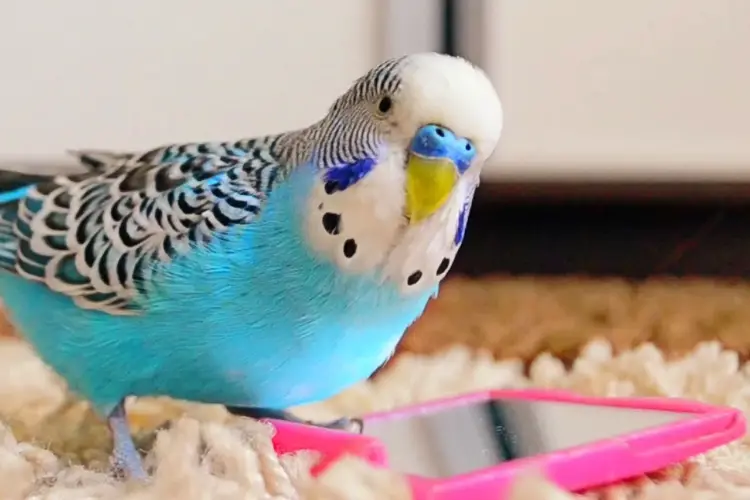You might be relaxing in your house and your budgie bursts into song. This may have you wondering what the meaning of the song is. Is my budgie trying to communicate with me? Parakeets mix chirps, chirrups, whistles, and other sounds into a continuous singing stream.
So what does it mean when a budgie sings? When budgies sing in captivity, it suggests they are pleased, joyful, and safe. Budgies sing to attract mates, their owner’s attention or mark their territories during the mating season. Male parakeets sing more than female budgies, particularly early in the morning.
This article will look at the numerous reasons why budgies sing and what it means when they do. We will also answer other related topics about budgie singing. Continue reading to learn more about what your budgie is trying to communicate.
What Does It Mean When A Budgie Sings?
When budgies are content, they sing frequently. Their songs are never the same; they like adding chirps, whistles, and varying melodies.
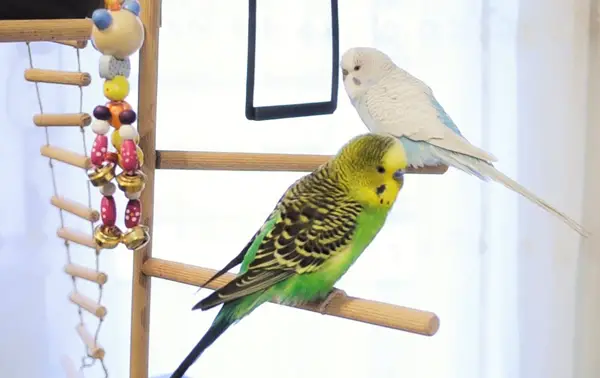
Male budgies are more musically oriented than female budgies. Budgies’ songs will be more pronounced during the morning. Here are the reasons why budgies sing.
Territory singing
Male budgies sing to mark their territory. The song informs other birds that the area is taken. Territorial songs are directed to other budgies because they compete for food and nesting spots among themselves. However, a few factors affect the intensity of the songs.
Budgies are social birds, and they sometimes live in large flocks. In such a case, the budgie’s song will be softer and less threatening. Also, the environment’s quality will determine the level of singing. Budgies will not require ample space if the area has much to offer.
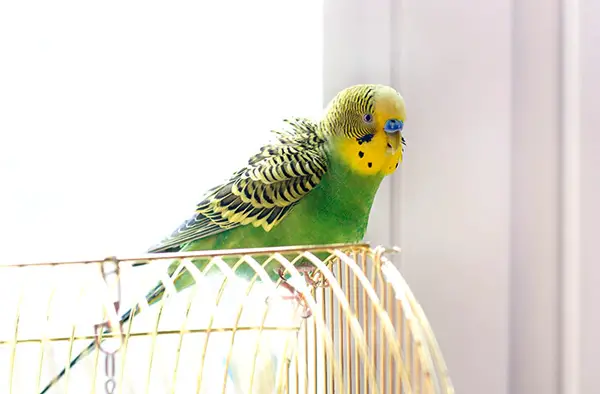
To attract mates
As we have established, most singing budgies are male. They display proficiency and entice females by using a range of tunes and sounds. It is a means for the male budgies to impress the females and capture their attention with their singing abilities.
Mating songs are most prominent during spring months when breeding takes place. Female budgies will listen to the male budgie’s song and determine whether or not they are an excellent genetic match.
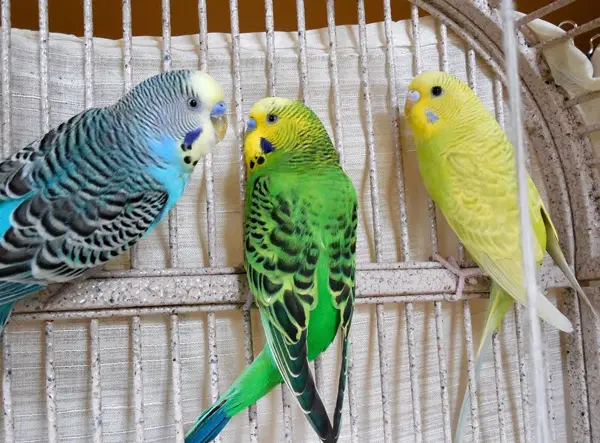
Most female budgies are drawn to music with intricate vocalizations. As a result, the more intriguing the song, the more likely that parakeet will be chosen as a mate. The one constant among all birds is that their song is crucial during the mating and nesting processes.
For pleasure
Budgies will sing when they feel happy in their environment. Sometimes, the singing is just to pass the time. Also, budgies may sing from merely enjoying the sound of their songs and experimenting with how they make each note.
If you have different age budgies, the young will attempt to steal songs from the adults. They do this to expand their repertoire of songs and sounds. These additional sounds help the young budgies when mating season arrives.

That is because it displays the bird’s ability to survive longer than the others. This also means that by comparing their songs and listening to which one is more complex, you can sometimes determine which budgie is older.
Is A Singing Budgie a Happy Budgie?
Yes, a singing budgie is a happy budgie. Most budgies will sing to assure their owner that it is safe. Other happy noises and behaviors can accompany the songs. The budgies may sing and repeat their favorite songs in a rhythmic or non-rhythmic manner. They might also incorporate human words in their melodies.
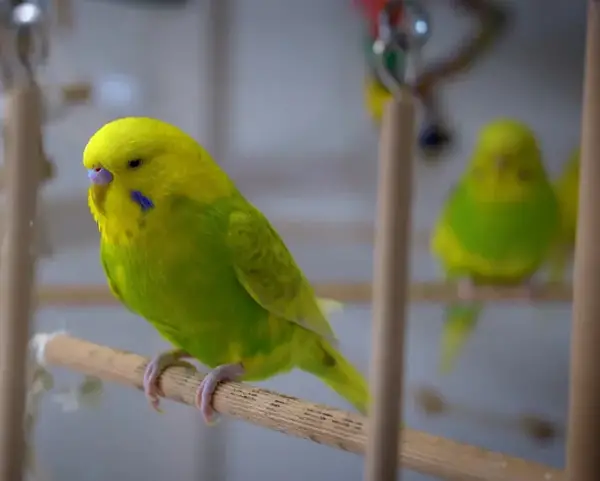
The body language that accompanies singing is flying around the cage, playing with toys, having a good appetite, and wanting to spend more time with you. However, in some cases, the budgies sing due to fear or anger.
For example, if a predator is around the cage, the budgerigar will sing in a high-pitched tone to alert its owner of the impending danger. This type of singing is accompanied by the budgie’s wings being slightly open and hissing.
Why Do My Budgies Sing So Much?
Excessive singing is more off-tune and not as harmonious as regular singing. There could be several causes for your budgie’s excessive singing. They include;

- New surroundings; if you just moved to a new house or changed the room’s setting, the budgies will constantly sing as a way to readjust to the environment. If you also moved the budgie’s cage to a new space, it might react with excessive singing.
- Loneliness; budgerigars are very social birds. If it has no source of entertainment or a companion, it will engage itself in singing a lot.
- Perfecting its vocals, juvenile and baby budgies may sing throughout as a way to exercise their vocals. They imitate older budgies and try to perfect their tunes.
- A group activity; if you own many budgies, they will influence each other to sing through the day. That is because songs are a way of communicating with each other, and birds are wired to return the call.
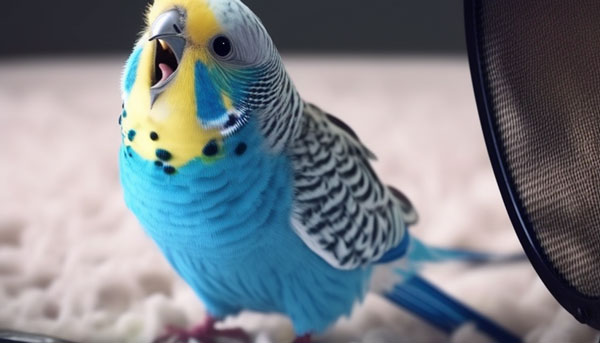
Do Budgies Sing At Night?
Yes, they do. Studies show that baby budgies sing at night when trying to learn how to vocalize. When young budgies attempt to sing, they only produce a babbling sound similar to that of infants before they can speak. The researchers discovered by observing the chicks’ singing that their singing did not improve during their daytime training but improved the following day.
Recordings of slumbering birds’ brains revealed bursts of activity that correlated to songs they had heard the previous day. Their brains naturally repeat the activation patterns they produce when singing during the day. It appears that birds’ vocal muscles move in response to these brain signals.
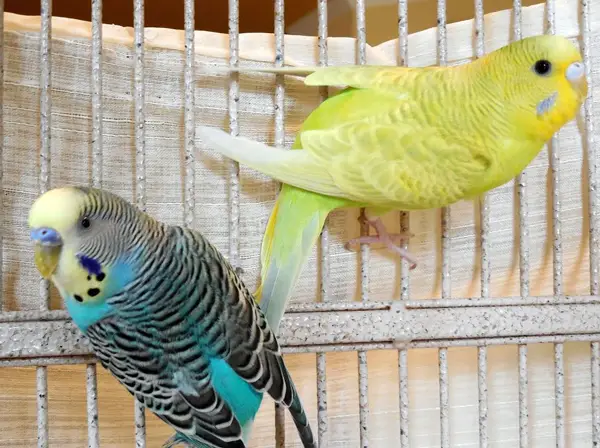
The next day, chicks trained to sing by playing the sound of an adult bird performing far better, indicating that their brains had worked on the songs while they slept.
Why Do Budgies Sing In The Morning?
A parakeet’s song may sound very different in the morning than in the afternoon or evening. At dawn, budgies sing the loudest because their voices can travel far. No noise interferes with their singing, so it is the perfect time to sing. Morning songs are more vibrant than at other times of the day.
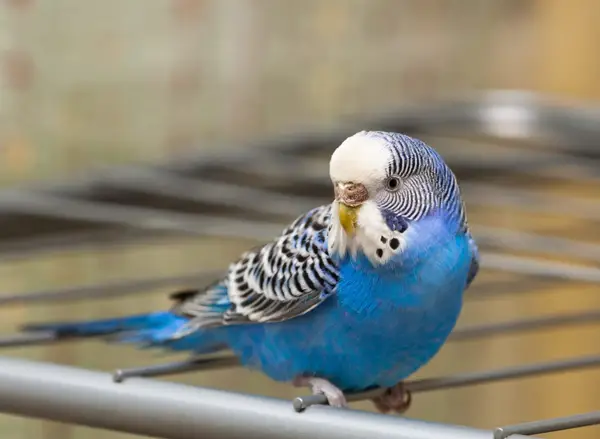
Male budgies also use the morning hours to ensure they pass a message that that territory is owned. Also, during the morning hours, most birds are hungry and weak. So, if a male budgie still has the vigor to sing loudly, it shows the female budgie that he is a good and robust mate.
FAQs
Here are other commonly asked questions about budgie’s singing.
If your budgie is new, do not sing to it. Some say that singing calms the budgies, but you might end up scaring the budgie. However, if the budgie is used to you, you can sing to it and even with it. The budgie will already get used to your voice, which can be your bonding activity. Studies show that budgies will react differently to things depending on their personality.
Yes, everything has its downsides. Singing may give away the budgie’s location, which attracts predators.
Conclusion
Your budgie is singing because it is happy and feels safe. Budgies sing when they want to mark their territories and for mating reasons. Female budgies choose the male budgies with the most complex vocalizations.
That is because as the budgie grows older, so does the complexity of its songs. If the singing is excessive, it could mean your budgie is lonely, bored, or trying to adjust to its new environs.
